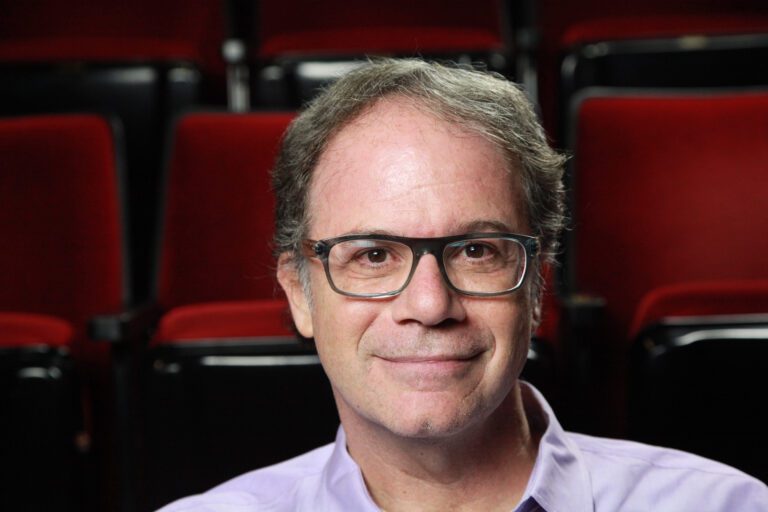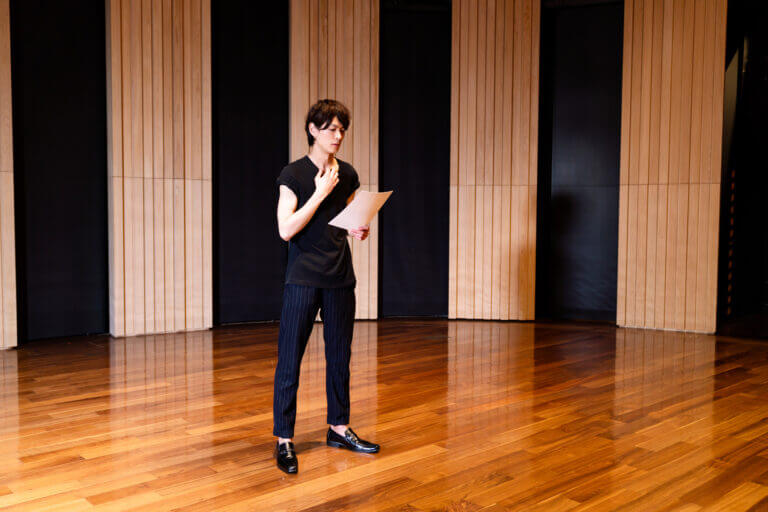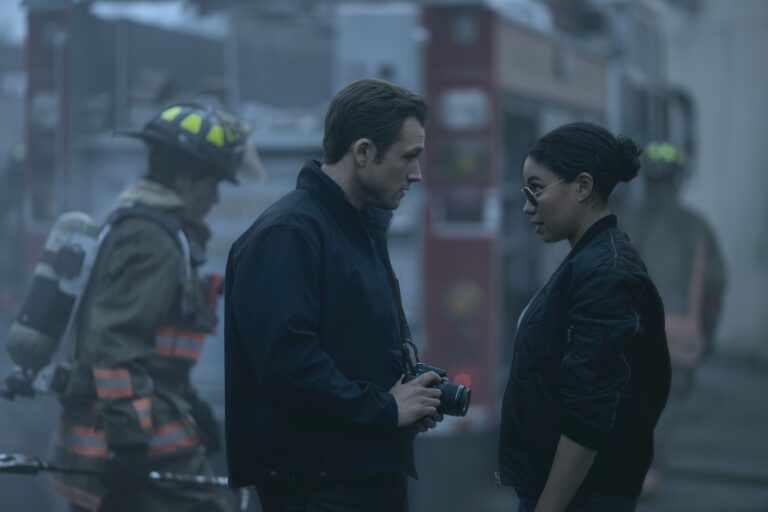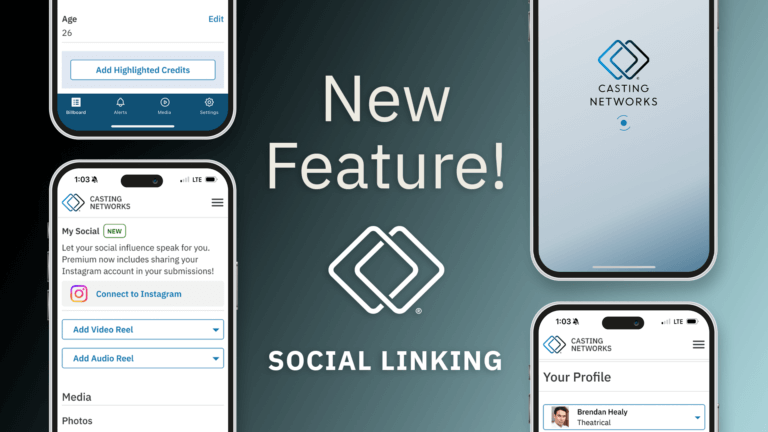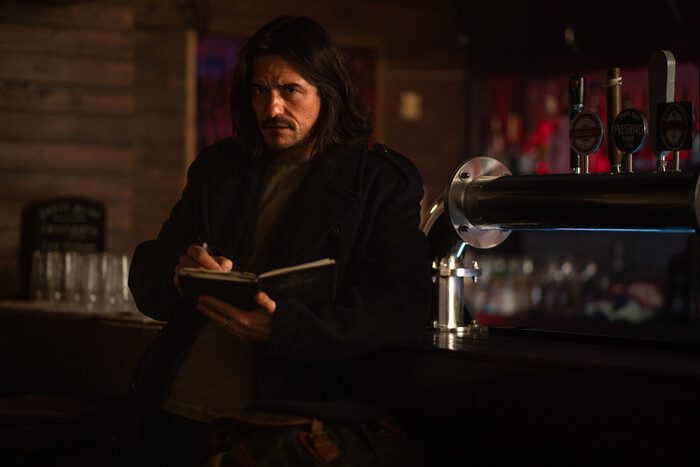Debra Wilson is an intensely colorful person. Not just because of the ornate tattoos that adorn almost every inch of her skin below the jawline, though that’s part of it. Really, what it comes down to is the intense sense of self she possesses, and the unique freedom she feels in her everyday existence. It’s fascinating and inspiring, and has, directly or otherwise, led to her being a constantly in demand voice actor, with over 300 movies, TV, and video games credits on her resume. The Mad TV sketch comedy veteran has shown up in everything from Star Wars projects to the Mickey Mouse Funhouse, with lots of Monster High and Star Trek in between, among many, many others. She spoke to us from her home in LA.
How did you get started as an actor?
How does anyone get started? It always starts with a spark of something that goes, I want to do this. I knew by five I was an actress, that this is what I do. I left the spark behind because I thought, put away childish things and grow up into an adult in which you can fend for yourself out in the world. But opportunities kept coming back that always allowed me to create choices for myself. Then I finally chose to say yes to it. It was emotionally a very scary journey, because there were too many times I believed that I was not enough but I kept saying yes, and I realized that this is an addiction. It’s who I am, it’s how I express myself in the world.
What was that final straw that allowed yourself to accept this path?
In New York, before I did Mad TV in Los Angeles, I worked on a sketch comedy series, a sketch comedy pilot, two major feature films, I was the spokesperson for Amana, I was a spokesperson for Burger King and I was doing off Broadway theater. I had all these opportunities, and they didn’t last. I started with improv. There was an improv group at a club called the Village Gate, which unfortunately no longer exists. I would raise my hand because no one else would get up, and it was like a game. It was fun, not a career. I can push the envelope and have fun in this moment, there’s an audience to play with, and there are people on stage to play with, and it ended up turning into more than that.
Why were you resisting it so intensely?
I felt like I didn’t deserve this, and that there were people who worked so hard at a craft. They studied, they honed, and they wanted it, and I didn’t. I didn’t want it other than to play and I never saw it as a career. I always had a stable base. I worked for the City of New York parks and recreation, and I loved what I did. It wasn’t until the fourth season of Mad TV that I fully accepted it. When I found out that I had booked the pilot, it was fun because it was a month in LA, and that’s all. I knew afterwards I’m back in New York, and I’m fine with that, because I’m used to things not going all the way, and not feeling like I have to challenge myself. The night I found out that it was going to series, my heart sank.
Because you still had that imposter syndrome?
Yes, to a huge extent.
What was it about that fourth season that it finally clicked for you?
They had new writers coming in, and one of these writers, Devon Shepherd, really got me. In the first few years, I was not jockeying for position. It was catty, everyone wanted to be famous, and all those people who wanted it for so long, they finally got on a sketch comedy series on Fox. I was awkward, because I did not want it like they did. When Devon arrived, things started rolling to the point in which I was comfortable, and I said, I’m here to stay.
How did your career change from that point on?
It completely imploded, which was an amazing and beautiful and fantastic happening, because the universe was building me up to a greater truth from the inside out.
You found that you had to do a lot of internal work before you were able to succeed?
I was forced to, yes, and that’s a beautiful place to be in hindsight, because my marriage was crumbling. I couldn’t afford my home. I wasn’t working. No one was looking for me outside of Mad TV. Some guest star appearances, but nothing that would take off. So for me, it equated back to my low self esteem, and it started to equate back to failure. You can’t keep a husband, you can’t keep a home, you can’t keep a career. What does that equate to? You’re a failure.
I had to completely let go of all of those other things. I left the place that I was in, started a separation with my husband, who is my best friend to this day, and gave everything away. It was allowing myself to accept that these things could be a burden in the material world, and that they had no power over me. I didn’t want to do anything with the experience that would take away from my growth and my power, and it was empowering to do that.
Now you’re back to square one, so to speak. How did you then find such success in voice acting?
I didn’t really get a lot of work on camera. Didn’t matter to me, so I started tatting myself. Because I’m like, this makes me happy. It didn’t matter if people said, how are you going to work? I wasn’t considering that, only what makes me happy. So the universe said, Because you are so clearly aware of your own happiness, you don’t have to worry about work. I volunteered for something because a friend of mine worked at Stan Winston Studios and they wanted to use me.
I knew there was no money involved, but I’m having a creative space where there’s no bartering, nothing financial, no contracts, no union. I’m living the joy. That first thing out of the gate was James Cameron’s Avatar and I was the prototype model for Neytiri, played by Zoe Saldana. Cameron then asked for me personally to do performance capture, which I had never done before. All I supposed to do was model for Stan Winston Studios, I did it as a favor to a friend.
Do you believe this all came from opening yourself up to possibility, rather than chasing it?
I just simply allowed. Voiceover was the space that came to me and I said, Now I’m equipped. Equipped with my self love, to see other people who are struggling, and see myself. I will coach, I will teach, I will volunteer, and I will be of service to Me. VoiceOver is a service industry. You know why? Because it’s not about my voice. It is never about my voice. My voice is always last. The story comes first.
Do you think that’s why you’re so successful as a voice actor? That subversion of your own ego?
A lot of actors say I become the character, but I can’t become a piece of paper. I can’t become something that you wrote. What I can do is take what you wrote and allow it to breathe through my experiences. My greatest X-Factor, and everybody’s greatest X-Factor, is the story that is within you.
All of your experiences play into it, and little did I know that all my struggles and all my darkness that came into the light would play into all of the characters that I’ve ever voiced. I have to tell their story, and I use my emotions to do it, so there’s that organic space that I hold in order to do it. You can always find a voice print. But what good is a voice print if you don’t tell the story?
Does this attitude translate to people connecting to your voice and your characters in a certain way?
I cannot tell you the number of people who have come to me and said, I felt like I found a home with my tribe of players. But when I heard your story, when I’m listening to your story, when I’m watching these things, I feel you. I feel all of those things because people know the reality of that vibration and frequency.
As you tell your own story, and you have the boldness to do so without any fear, and you have the boldness to cut yourself open and bleed and cry, you are going to hit the nerve of somebody out there who goes, I needed to feel like I was not alone.
Knowing that so many people react so strongly to what you do, is there more pressure on you?
That’s not important. I have no expectation of how it’s going to go, and what people are going to think, and any pressure about fans or how they’re going to put it together. I have no pressures anymore, because all I want to do is serve your story.
I always remember, and I tell them every time I’m in a booth, my six word mantra: “it didn’t have to be me.” And because I am older, I can appreciate the wisdom of it and hold on to that and not let it go. I’m not interested in selling myself in the business. The only thing that really sells me is my love and being of service and I’ve got a resume to prove it.
If somebody was trying to break into voice acting, is that the advice you would give them?
Everybody’s different. I would never give them advice that works for me. It would be unfair and egotistical. But my thing is, when I coach people, and when I do voiceover seminars and workshops and Q and A’s, everybody can talk about the business agents, vocal exercises, things to keep your voice, your booth, your setup, things to do, what not to do, all of those things. For me, I’m always sharing that personal space so that they know, emotionally and spiritually that they are enough. They have a right to do this.
Thinking about joining Casting Networks? Sign up for a free trial today!
You may also like:







